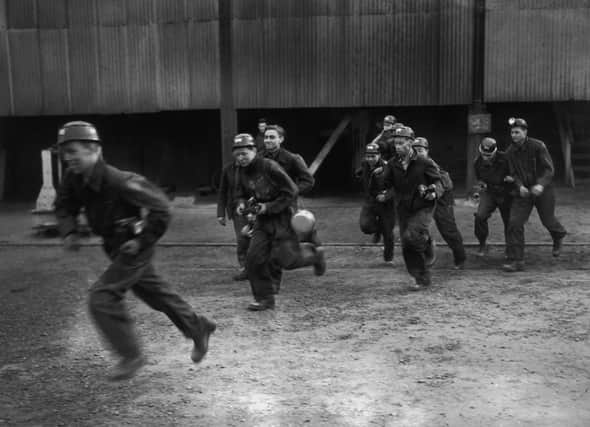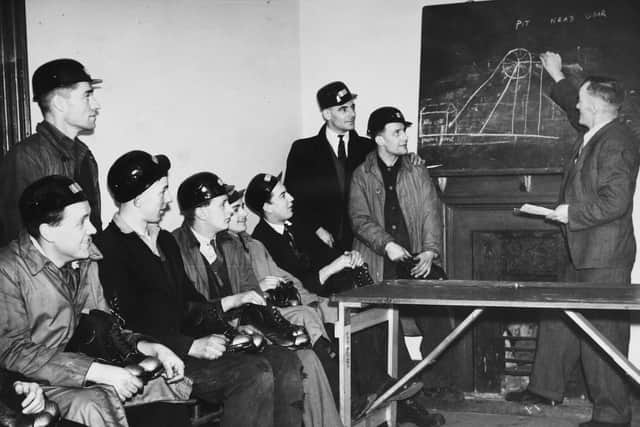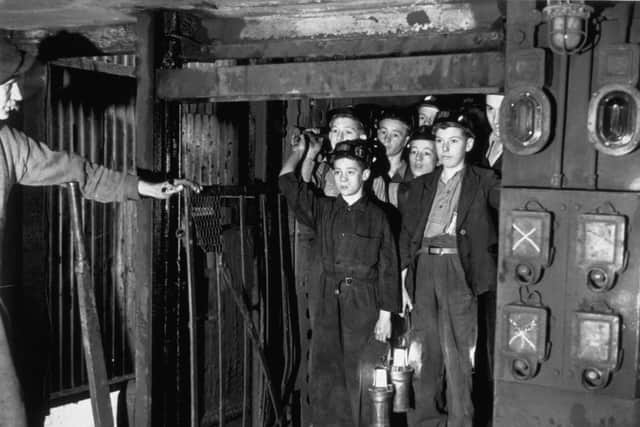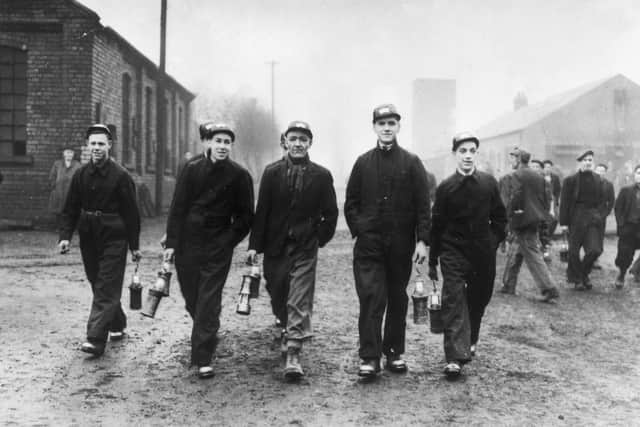Rare pictures of Britain’s ‘forgotten army’ of Bevin Boys


Yet in their time, Britain’s “Bevin Boys” were as much photographed as the other contributors to the war effort, and these rarely-seen archive shots are testament to their toils.
At the start of the war in 1939, thousands of experienced miners left the pits to join the armed forces and by 1943, with only three weeks’ supply of coal remaining for the power stations, Ernest Bevin, the Minister of Labour and National Service, devised a ballot scheme in which a proportion of conscripted men would be sent to the collieries rather than the armed services.
Advertisement
Hide AdAdvertisement
Hide AdEvery month, two numbers were drawn from a hat, and those whose National Service registration number ended with the matching digits were directed to the mining industry.


They came not just from pit towns but from every region and from all social classes. Their number included a young Eric Morecambe. Not all worked on the coal face; many were put to work as assistants or on maintenance duty.
The scheme was not universally popular, especially among mining families who had seen their own children drafted into the armed forces, only to be replaced by “outsiders”. And because the Bevin Boys were not in military uniform, some mistook them for draft dodgers.
The ballot scheme was abandoned after VE Day and the last Bevin Boys demobbed three years later – but unlike other conscripts they had no right to go back to their previous jobs and received no service medals, demob suits or letters of thanks.
Advertisement
Hide AdAdvertisement
Hide AdIt was not until 2008 that the then Prime Minister, Gordon Brown, awarded commemorative badges, featuring a pithead motif and a silhouette of a miner, to 27 surviving conscripts.


Editor’s note: first and foremost - and rarely have I written down these words with more sincerity - I hope this finds you well.
Almost certainly you are here because you value the quality and the integrity of the journalism produced by The Yorkshire Post’s journalists - almost all of which live alongside you in Yorkshire, spending the wages they earn with Yorkshire businesses - who last year took this title to the industry watchdog’s Most Trusted Newspaper in Britain accolade.
And that is why I must make an urgent request of you: as advertising revenue declines, your support becomes evermore crucial to the maintenance of the journalistic standards expected of The Yorkshire Post. If you can, safely, please buy a paper or take up a subscription. We want to continue to make you proud of Yorkshire’s National Newspaper but we are going to need your help.
Advertisement
Hide AdAdvertisement
Hide AdPostal subscription copies can be ordered by calling 0330 4030066 or by emailing [email protected]. Vouchers, to be exchanged at retail sales outlets - our newsagents need you, too - can be subscribed to by contacting subscriptions on 0330 1235950 or by visiting www.localsubsplus.co.uk where you should select The Yorkshire Post from the list of titles available.


If you want to help right now, download our tablet app from the App / Play Stores. Every contribution you make helps to provide this county with the best regional journalism in the country.
Sincerely. Thank you.
James Mitchinson, Editor
Comment Guidelines
National World encourages reader discussion on our stories. User feedback, insights and back-and-forth exchanges add a rich layer of context to reporting. Please review our Community Guidelines before commenting.